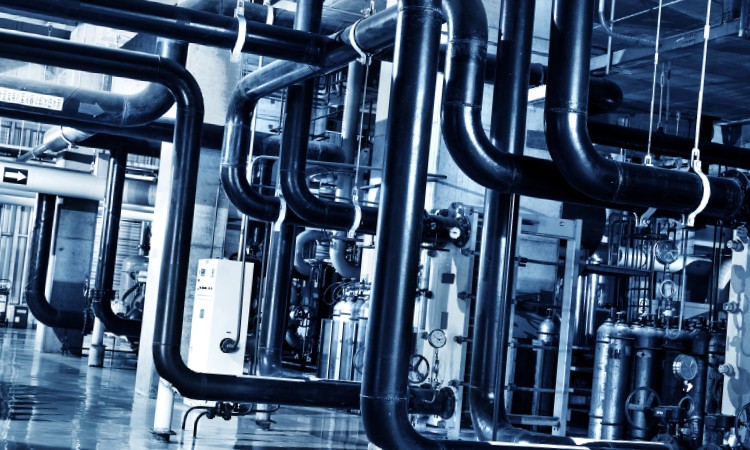There are different types of industrial steam boilers. Industrial boilers are heat generating equipment intended for the conversion of fluids for heat transfer.
It is the basis for the operation of many industries for various uses, such as carrying out certain chemical processes in industry, or heating.
In this post we will explain what are the types of industrial steam boilers and why it is important to use electric steam boilers to ensure maximum efficiency and energy savings.
Classification and types of industrial steam boilers by design and operation
Industrial steam boilers have much higher safety and efficiency systems than domestic boilers. They can be generally divided into different types according to their operation, for which it is very important to consider the type of fuel that feeds them.
These energy sources can be:
- Electricity: electric steam boilers use electricity to regulate power and allow for greater energy efficiency and savings. There is no combustion or gas in these systems, so there is no risk of dangerous fume leakage.
- Gas: gas boilers have generally operated with gases such as diesel, natural gas, butane, propane or biomass.
On the other hand, if we consider the design of the heat transfer circuits, we can classify boilers according to whether they are tubular or not. In boilers with a tubular design, the fluid is transported through the tubes for heat transfer, while in tubeless boilers, heat exchange occurs directly in the combustion chamber.

Water tube boilers, smoke tube and pyrotubular boilers
There are two types of industrial steam boilers.
- Pyrotubular boilers, also called smoke tube boilers, are those in which the combustion gases circulate through the tubes. The main disadvantage of this modality is that they have a capacity limited to 1,500 C.C. (Steam Horse Power) and a maximum pressure of 21 kg/cm2.
- Water-tube or water-tube based boilers are those in which the water flows through a closed circuit of tubes.
Generators need some type of fuel for heat generation, and this can be gas, diesel or electricity, which in turn can use energy supplied from renewable sources.
High-pressure hot water and steam boilers
Among the types of boilers based on energy efficient sources, we must also mention hot water boilers, generally used for space heating processes, domestic hot water and other uses.
There is also a fourth type of boilers based on high pressure steam. This type of boilers, which are the ones we offer in Giconmes.
This type of boiler provides a heat supply from steam, which is a clean, natural and energy-efficient source of energy.
It also facilitates operational reliability and the availability of in-plant heat supply needed to meet demand.
Our industrial steam boilers are based on electrical resistances, and in the case of high pressure boilers, on electrodes.
If we talk about the types of electric boilers for industrial uses, we must distinguish between the different types of generators that can be purchased. These include the following subtypes:
- Wet steam: they generate a wet steam at temperatures of 100 or up to 140º.
- Saturated steam: they produce steam at temperatures between 140 and 180º.
- Oversaturated steam: they generate steam at temperatures of more than 180º.
From Giconmes we would like to invite you to get to know our steam generators for industrial use, which will allow you to achieve greater cost savings and better energy efficiency, using a renewable and natural source such as steam and electricity for the generation and transfer of heat for different industrial uses and at different pressures.